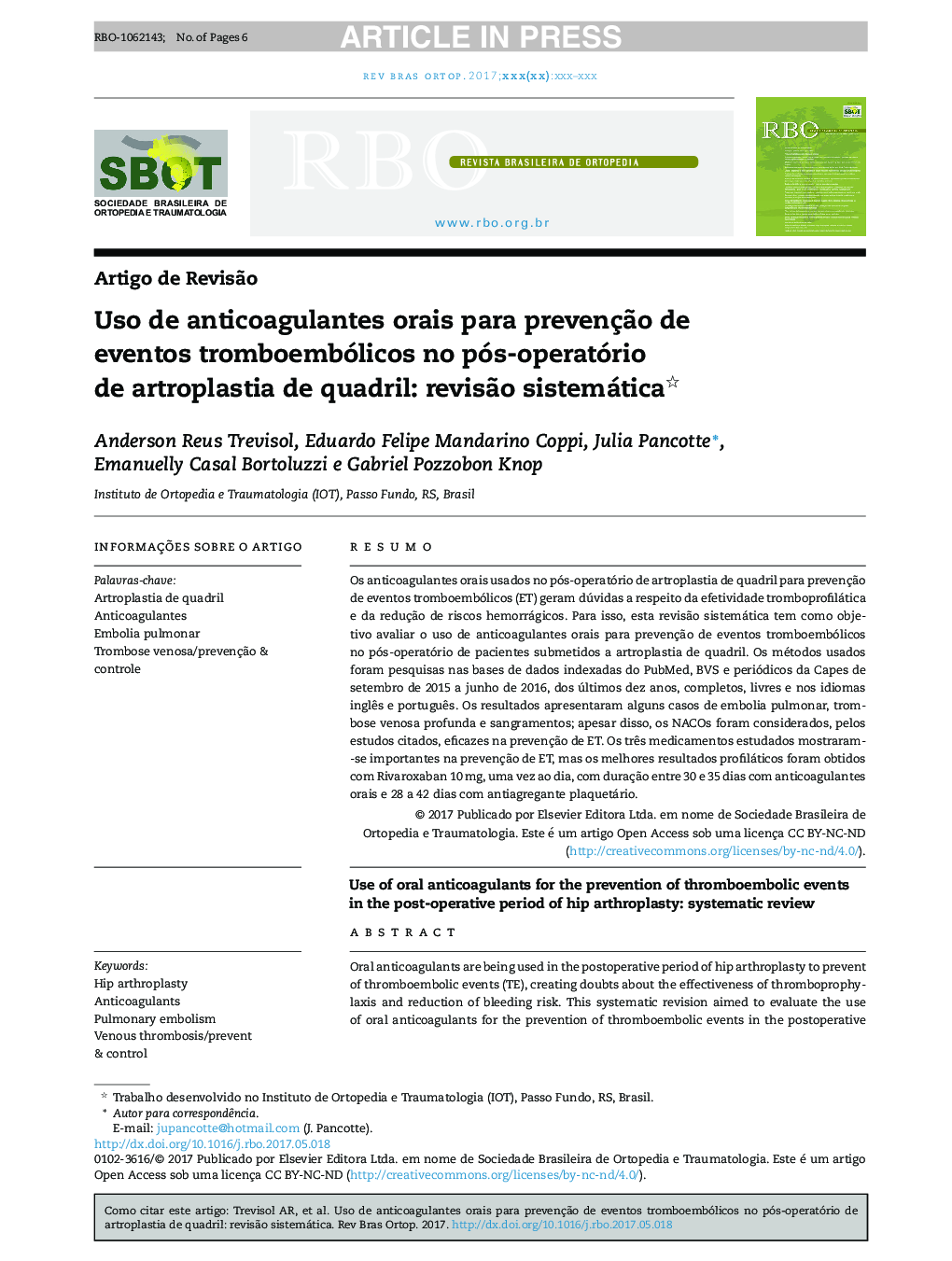| Article ID | Journal | Published Year | Pages | File Type |
|---|---|---|---|---|
| 10211614 | Revista Brasileira de Ortopedia | 2018 | 6 Pages |
Abstract
Oral anticoagulants are being used in the postoperative period of hip arthroplasty to prevent of thromboembolic events, create doubts as to the effectiveness of thromboprophylaxis and reduce the risk of hemorrhage. This systematic revision is aimed at evaluating the use of oral anticoagulants in the prevention of thromboembolic events in the postoperative period of patients undergoing hip arthroplasty. Research with descriptors found on PubMed, BVS, and the CAPES portal for medical journal publications from September 2015 to June 2016, from the last ten years (2005 to 2015), complete, free, and written in Portuguese and in English were the methods used. The results of the studies showed some cases of pulmonary embolism, deep vein thrombosis, and bleeding; even then, the NOACs were effective in preventing thromboembolic events. There is no consensus regarding the prophylaxis method for these events, which is why the challenge is to obtain high levels of prevention while minimizing the adverse effects. The most studied oral anticoagulant was rivaroxaban (67%). The three drugs that were studied have shown to be effective in preventing thromboembolic events, but the best results were obtained with rivaroxaban 10Â mg, one tablet daily; treatment duration ranged from 30 to 35 days with oral anticoagulants and from 28 to 42 days with antiâplatelet drugs.
Keywords
Related Topics
Health Sciences
Nursing and Health Professions
Physical Therapy and Rehabilitation
Authors
Anderson Reus Trevisol, Eduardo Felipe Mandarino Coppi, Julia Pancotte, Emanuelly Casal Bortoluzzi, Gabriel Pozzobon Knop,
